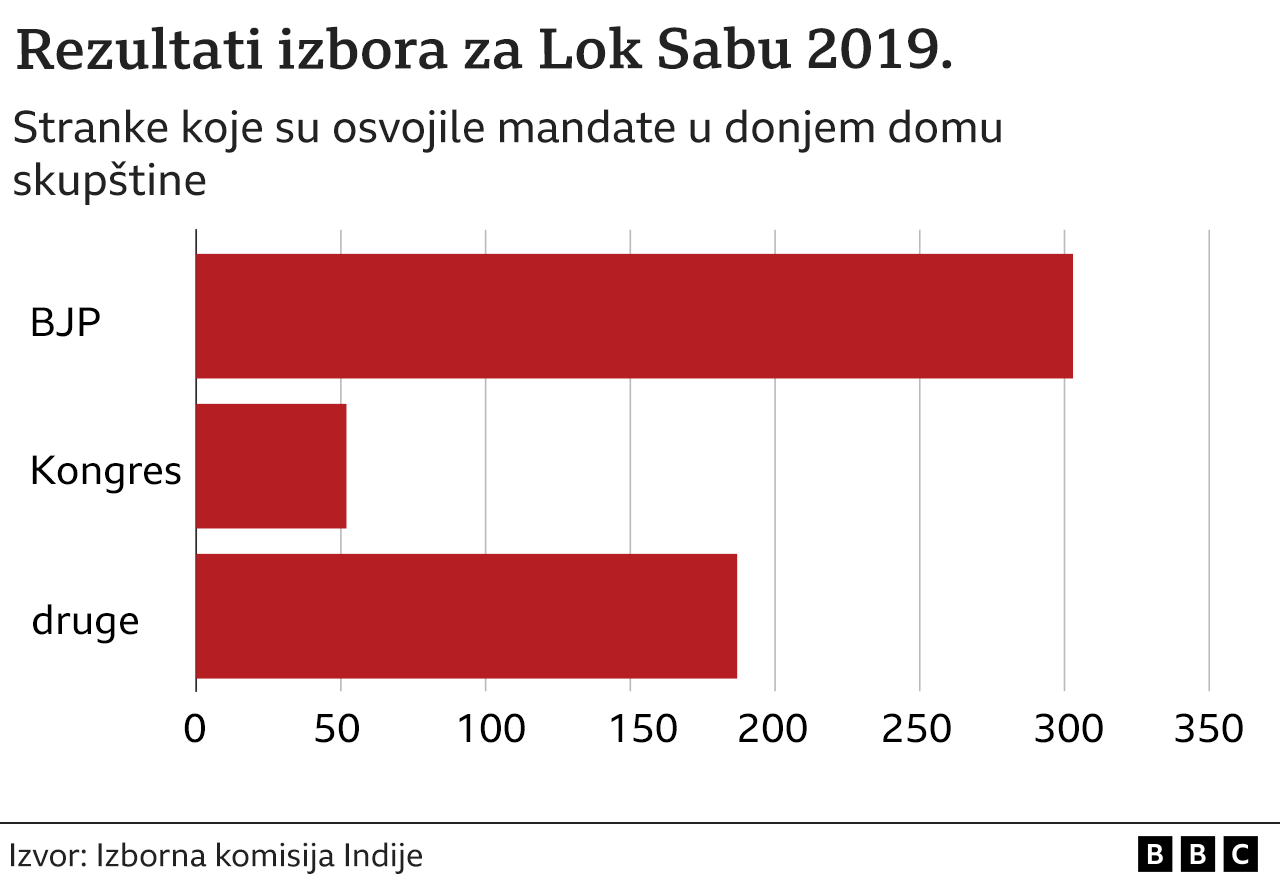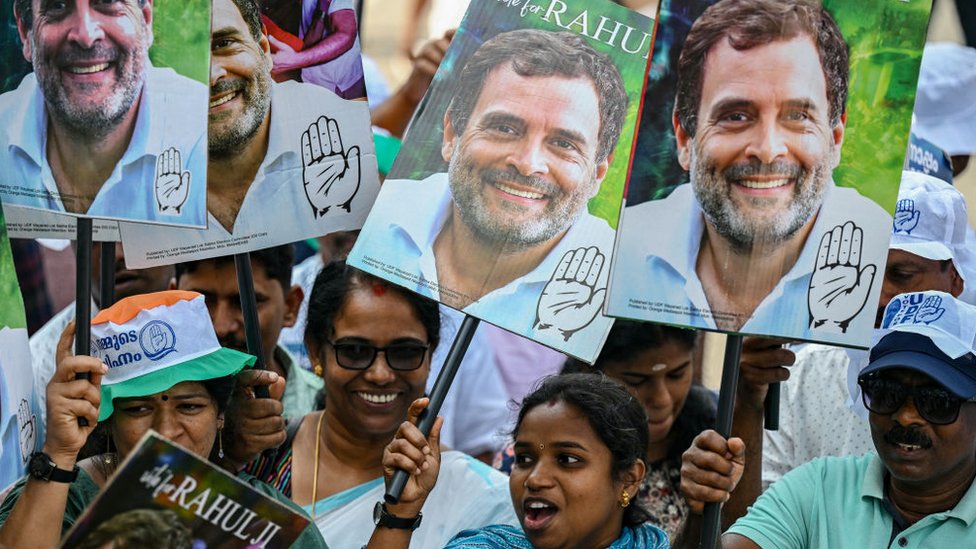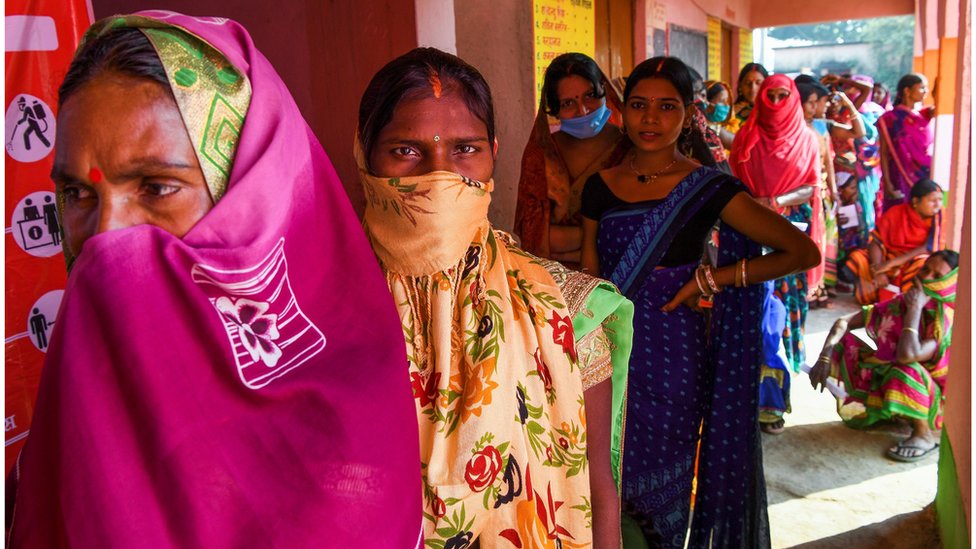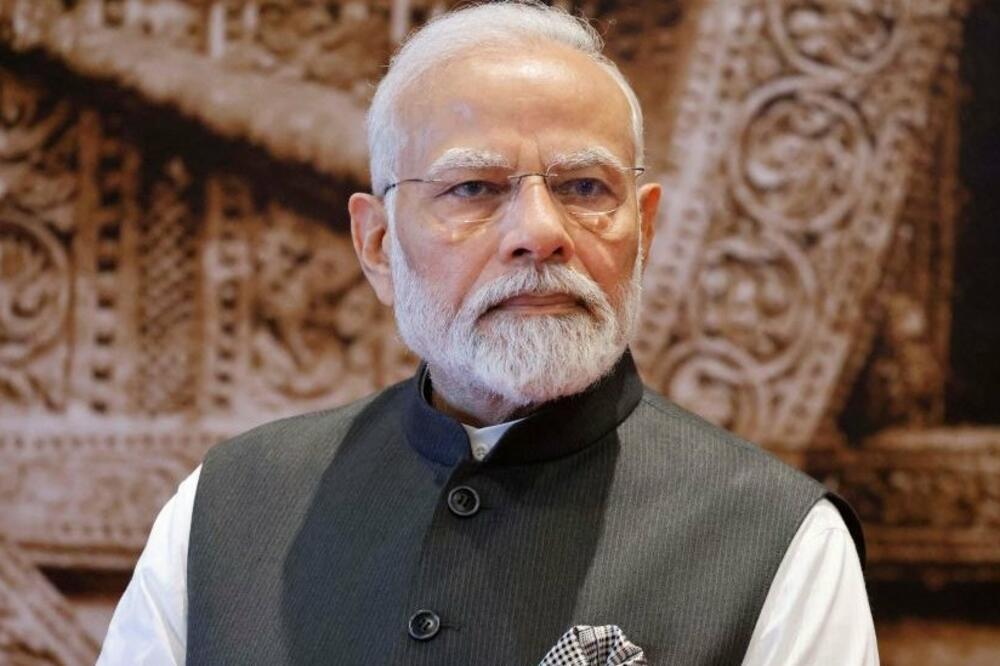Prime Minister Narendra Modi hopes to win a third consecutive term, while opposition parties argue that Indians will lose many freedoms if he remains in power.
India's 2024 general election over six weeks, from April 19 to June 1 - will be the biggest the world has ever seen.
Which parties are contesting against Narendra Modi's Indian People's Party?
Polls show that Modi's Indian People's Party (Bharatiya Janata Party - BJP) and allies could win elections to the Lok Sabha - the lower house of the Indian parliament - for the third time in a row.
The Lok Sabha elects the Prime Minister, who in turn elects cabinet ministers.
- Narendra Modi: The Controversial Politics of the Indian Prime Minister
- The Indian Prime Minister opened a large Hindu temple on the site of a demolished mosque
- "Barat": Is this the new name of India
In the 2019 elections, the Indian People's Party won 303 parliamentary seats, and its coalition - the National Democratic Alliance - won a total of 352 parliamentary seats.

The main challenge in 2024 is the coalition of political parties led by the Indian National Congress, the largest opposition party.
More than two dozen parties formed the Indian National Development Inclusive Alliance ("India" for short) with the Congress.
Key politicians in this group include Congress President Mallikarjun Kharge, as well as brother and sister Rahul and Priyanka Gandhi, whose father Rajiv Gandhi was the Prime Minister of India.
Their mother, Sonia Gandhi, is a powerful opposition leader, but she is not expected to campaign as hard as she did in 2019.
Delhi's ruling party, the Am Admi Party (AAP), is part of the coalition, along with several important regional parties.
Three party leaders were recently arrested on corruption charges.
The AAP accuses Modi and his party of political vendetta, which the Indian People's Party denies.
What are the key issues and why are general elections important in India?
Modi can claim that India's position in the world has improved thanks to economic growth and closer relations with the US, which wants India to be its ally against China.
He recently introduced generous welfare programs, such as free food grains for India's 800 million poorest people and a monthly allowance of 1.250 rupees ($16) for women from low-income families.

In the manifesto, the Congress claims that unemployment is still high, especially among young people.
He announces higher welfare payments for women, three million additional government jobs and more internships for college graduates.
He also promises to stop "India's descent into autocracy".
Minority groups claim they often face discrimination and attacks, and are forced to live as "second-class citizens" under Modi - a charge his party denies.
Civil liberties NGO Freedom House says journalists and others who question the Indian People's Party government are increasingly targeted for harassment.
It classifies India as "Partly Free".
What are the election day dates and why does voting take so long?
Voting takes place in different areas during seven election days: April 19, April 26, May 7, May 13, May 20, May 25 and June 1.
The results will be announced on June 4.
Voting was stretched out to allow security to guard polling stations across the country.
Millions of electronic voting machines will be used, allowing people to choose between candidates or choose "none of the options".
Who can vote in Lok Sabha elections?
Voters must be Indian citizens, over 18 years of age and registered as voters.
They also need a voter identification card.

Thirteen million Indian citizens living abroad can also vote, but must register and return to India to do so.
There are 543 MPs in the Lok Sabha, and an individual party or coalition needs at least 272 seats to form a majority.
Lok Sabha members are elected for a five-year term to represent one constituency, and the winner is the candidate with the most votes.
131 seats are reserved for deputies from the so-called "protected castes" and "protected tribes".
These are groups officially recognized as socially vulnerable and make up about a quarter of India's population.
India has passed legislation to reserve a third of parliamentary seats for women, but it won't take effect for several years.
How they are collected voices across India?
India covers an area of 3,3 million square kilometers, and election rules state that there must be a polling station close to every settlement.
In the 2019 elections, there was a single resident polling station in a secluded forest area of the Gir National Park in Gujarat.
In the 2024 elections, officials will walk 39 kilometers to a village in the state of Arunachal Pradesh, in northeastern India, so that a single person can vote.
Follow us on Facebook, Twitter, Instagram, YouTube i Viber. If you have a topic proposal for us, contact us at bbcnasrpskom@bbc.co.uk
Bonus video:




